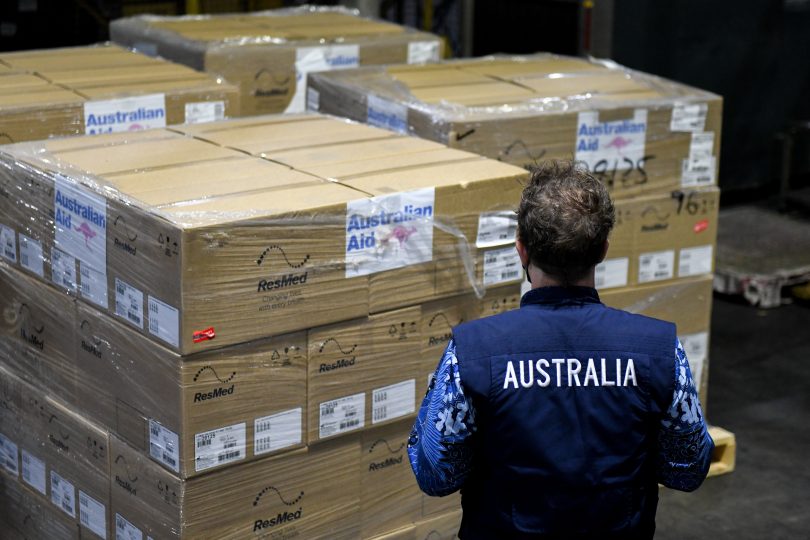Australia should lift its aid budget by an extra $3 billion (US$1.9 million) over the next four years, as it can’t afford to “lack credibility” on key issues such as climate change with its Indo-Pacific neighbours.
Australian Council for International Development chief executive Marc Purcell called on the federal government to increase funding for aid by $648 million (US$421 million) in the coming financial year.
“The foreign aid budget is at an all-time low as a proportion of overall government spending,” he said.
“Without a substantial boost, this is set to flatline from 2026 even as global demand for humanitarian and development assistance soars.”
Australia has become one of the least generous OECD aid donors, coming in 28th place out of 31 nations.
It also ranks lowly in foreign aid spending among other major economies.
Purcell said failing to invest in foreign aid risked undermining Australia’s position as a trusted and respected regional partner.
“We are in a very competitive geo-strategic space … if we don’t do this, others will,” he said.
Purcell pointed to China’s expanding influence in the region and the deals it had signed with Pacific nations.
In a pre-budget submission, the council has urged $150 million (US$97 million) to double Australia’s humanitarian emergency fund contribution, and $100 million (US$64 million) as an initial pledge for the global Loss and Damage Fund for developing nations.
The fund was set up at the United Nations Climate Conference to help countries vulnerable to climatefuelled natural disasters manage loss and damage.
The submission says Australia’s development assistance program is “out of step” with Labor’s promise to deliver one that was fit for the challenges of this period in history.
Purcell said Australia’s aid priority should be focused on climate mitigation.
“This is our credibility on the line,” he said.
“What is happening is we want to see new and additional funding for climate change, not double counting existing poverty alleviation programs which is what is happening at the moment”
“The government needs to ask itself, whether we can afford to not have a credible position on climate with our Pacific neighbours … there’s an issue about Australia’s reputation,” he said.














